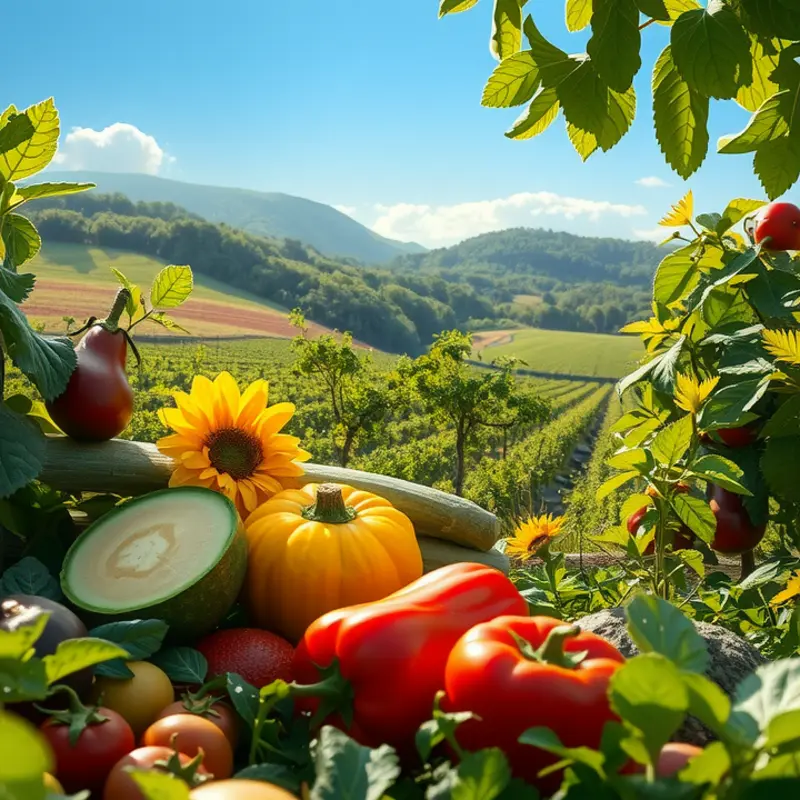Meal anticipation is more than simply looking forward to what’s on your plate. It involves a deeper connection to our food, enhancing both our emotional well-being and our relationship with eating. By understanding how our feelings about food can influence our choices, we open the door to mindful eating habits that nourish both body and soul. Let’s explore this fascinating subject and uncover the profound impact anticipation has on our dining experiences.
The Science Behind Meal Anticipation

Meal anticipation is a potent psychological tool that affects how we perceive and enjoy our food. By understanding its effects, we can enhance emotional health and cultivate mindful eating habits. Anticipation activates the brain’s reward system, increasing dopamine levels, which are linked to pleasure and mood improvement. This biochemical reaction ensures that even before food reaches our lips, we’re already primed for a positive dining experience.
Psychologists have found that the act of looking forward to meals can enhance satisfaction. When we envision a meal, engaging in mental imagery of flavors and textures, our brain responds similarly as if we were actually tasting the food. This mental rehearsal not only builds excitement but helps form a deeper connection with what we eat. It’s a gentle reminder of how our perceptions and expectations can shape our actual experiences.
Anticipation also fosters a positive relationship with food by encouraging intentional eating and gratitude. When we allow ourselves to look forward to eating, we’re more likely to make choices that align with our nutritional needs and personal values. Incorporating elements such as aroma, presentation, and texture into meal planning can transform mundane meals into multisensory experiences that nourish both body and mind.
To harness the power of meal anticipation for enhanced mindfulness, consider implementing small strategies in your daily routine. Start by planning meals in advance. This doesn’t mean complicated meal prep, but rather a simple outline of upcoming meals. This can help you make informed dietary choices and prevent impulsive eating. For those seeking minimal prep ideas, easy recipes can ensure anticipation isn’t overshadowed by stress. For inspiration, check out these minimal prep dinner ideas.
Another way to cultivate anticipation is through mindful grocery shopping. Select ingredients that excite you, and let their possibilities set the tone for your meals. Anticipation grows when you engage with the colors, smells, and potential combinations of these ingredients. Bringing a sense of curiosity into your food selection process can transform a routine task into an opportunity for mindfulness.
Visualization practices can also enhance anticipation. Before starting a meal, take a moment to imagine what you are about to eat. Focus on how it tastes and how it nourishes your body. This often leads to an enriched eating experience as it aligns mental expectations with physical reality, often resulting in greater enjoyment and satisfaction.
Incorporating anticipation into meals isn’t about complicating eating. It’s about enriching the experience, ensuring that each meal not only serves nutritional needs but also emotional well-being. By consciously anticipating your meals, you’re not just sitting down to eat; you’re engaging in a fulfilling ritual that honors both your mind and body.
Cultivating Mindful Anticipation

Cultivating mindfulness in anticipation of meals can transform each dining experience into a meaningful event. By attending to the sensory elements of a meal, you nurture emotional health and create a deeper connection with your food.
Begin by visualizing your meal. As you prepare or await your meal, imagine the colors and presentation that will grace your plate. Picture the vibrant greens of a salad or the rich tones of roasted vegetables. This simple act can trigger joy and anticipation, setting the stage for an enjoyable eating experience.
Next, engage your sense of smell even before the first bite. Inhale the aroma wafting through the kitchen as spices and ingredients meld. This gives your brain a preview of the flavors to come, heightening anticipation and satisfaction once you begin eating.
Taste encompasses more than just flavor. It involves the complexity of sweet, salty, sour, bitter, and umami elements that dance on your palate. Before diving into your meal, pause to consider what these sensations might be. Set the intention to notice flavor layers as you eat.
Texture is another sensory aspect often overlooked but crucial in crafting an enriching meal experience. Crunchy, creamy, chewy—take a moment to anticipate how your meal will feel in your mouth. This mindfulness not only increases enjoyment but also encourages slower eating and improved digestion.
Preparing your mind for a meal involves more than visualizing and contemplating sensory elements. Make an effort to clear your mental space. Focus on your upcoming meal, releasing thoughts of daily stresses or unrelated concerns. This transition allows your mind to align with your body’s needs, promoting harmony between your psychological state and dietary practice.
In anticipation, also consider the source and journey of your ingredients. Reflect on the culinary influences and traditions that may have inspired your meal, linking your personal experience to broader cultural narratives. Exploring these connections can provide a deeper appreciation and sense of gratitude as you enjoy your food. For those interested in how global trade shapes culinary diversity, this article offers valuable insights.
Through these mindful practices, anticipation shifts from merely waiting to a state of active engagement. Cultivating these skills enriches your emotional well-being and transforms meals into celebrations of nourishment and mindfulness.
Final words
Understanding meal anticipation is a vital step toward enriching our emotional health and transforming how we engage with food. By recognizing the influence of anticipation on our eating habits, we can foster a more mindful approach that celebrates the full experience of each meal. When we take the time to anticipate, savor, and appreciate our food, we not only improve our emotional state but also strengthen our relationship with nourishment. This awareness and connection to our meals empower us to live more harmoniously with our bodies and the world around us.







